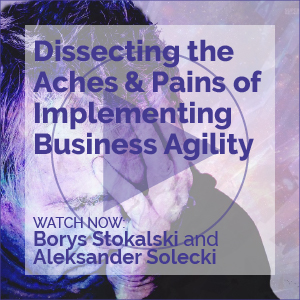Light Methodologies
Software Development
Light Methodologies
Software Development
It's The Web, Stupid
During the 1992 US presidential campaign, the Democratic Party entered a new phrase into popular American vocabulary: "It's the economy, stupid!" The phrase echoed its belief (and campaign strategy) that the economy was the most important issue of the day and that many issues and problems could be traced back to it.
It's The Web, Stupid
During the 1992 US presidential campaign, the Democratic Party entered a new phrase into popular American vocabulary: "It's the economy, stupid!" The phrase echoed its belief (and campaign strategy) that the economy was the most important issue of the day and that many issues and problems could be traced back to it.
Drill-Down on ASP Service-Level Agreements
Drill-Down on ASP Service-Level Agreements
Labor Dept. Uses H1-B Fees to Subsidize Training
Labor Dept. Uses H1-B Fees to Subsidize Training
Beware of Recommendation Lists
In November 1999, the Public Accounts Committee of the British House of Commons published a report entitled "Improving the Delivery of Government IT Projects." It draws lessons from 25 cases from the 1990s where the implementation of IT systems resulted in "delay, confusion, and inconvenience to the citizen and, in many cases, poor value for money to the taxpayer." The Committee warned that, if those lessons go un
The OMG Data Warehouse Standard
In last week's Architecture/e-Business E-Mail Advisor, I discussed the Common Object Request Broker Architecture (CORBA) and the fact that most companies are using CORBA mixed with some other technology, like Java and Enterprise JavaBeans. At the same time, I suggested that the Object Management Group (OMG) was increasingly focused on standards derived from other OMG specifications, especially UML, MOF, and XMI.
Lifecycle Considerations for Survivable Systems
There is renewed interest in development of systems that are able to survive attacks, accidents, and failures, while maintaining the ability to provide users with essential services [1]. Such systems require new approaches during various lifecycle activities. We find that a spiral model, modified to highlight survivability considerations, is one way to approach systems development so as to gain survivability [2].
Lifecycle Considerations for Survivable Systems
There is renewed interest in development of systems that are able to survive attacks, accidents, and failures, while maintaining the ability to provide users with essential services [1]. Such systems require new approaches during various lifecycle activities. We find that a spiral model, modified to highlight survivability considerations, is one way to approach systems development so as to gain survivability [2].
Lifecycle Considerations for Survivable Systems
There is renewed interest in development of systems that are able to survive attacks, accidents, and failures, while maintaining the ability to provide users with essential services [1].
Lifecycle Considerations for Survivable Systems
There is renewed interest in development of systems that are able to survive attacks, accidents, and failures, while maintaining the ability to provide users with essential services [1].
The Changing Face of Middleware
Contract Must-Haves
Contract Must-Haves
IT and the Potential to Create
Beginning in about March of this year, you could almost hear the collective sighs of relief from managers of established (i.e., pre-Web) companies. Before that, it had begun to seem that the rules of the business game were different for "e-firms" than they were for others. Great sums of money were being thrown at any new business idea that involved a Web site.
The OMG and CORBA 3
The Object Management Group (OMG) was established in the late 1980s to coordinate the work of a number of companies that wanted to develop standards for object-oriented (OO) development. After some discussion, the group agreed to focus first on the problem of facilitating communications between different OO languages. To do this, it developed CORBA -- the Common Object Request Broker Architecture.
Privacy 101
Don't I wish I could knock out a snappy 25-words-or-less definition of what is or is not "privacy"? No such luck.
Privacy 101
Don't I wish I could knock out a snappy 25-words-or-less definition of what is or is not "privacy"? No such luck.
The OMG and CORBA 3
The Object Management Group (OMG) was established in the late 1980s to coordinate the work of a number of companies that wanted to develop standards for object-oriented (O
The OMG and CORBA 3
The Object Management Group (OMG) was established in the late 1980s to coordinate the work of a number of companies that wanted to develop standards for object-oriented (O


